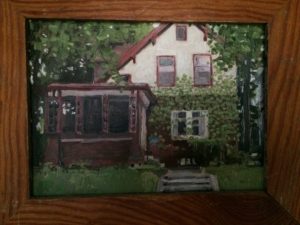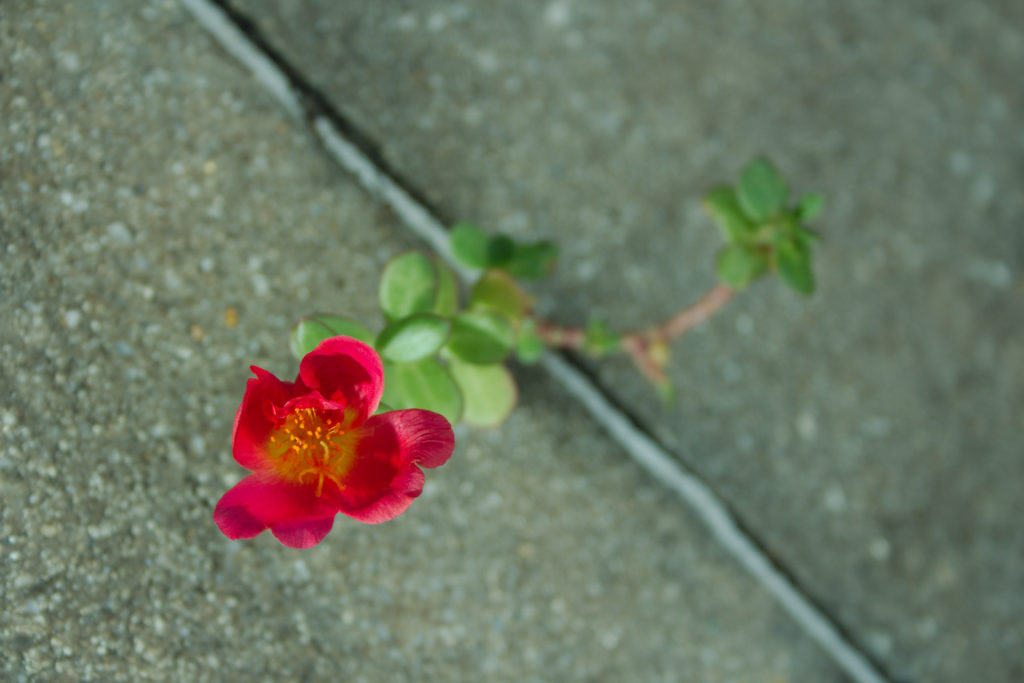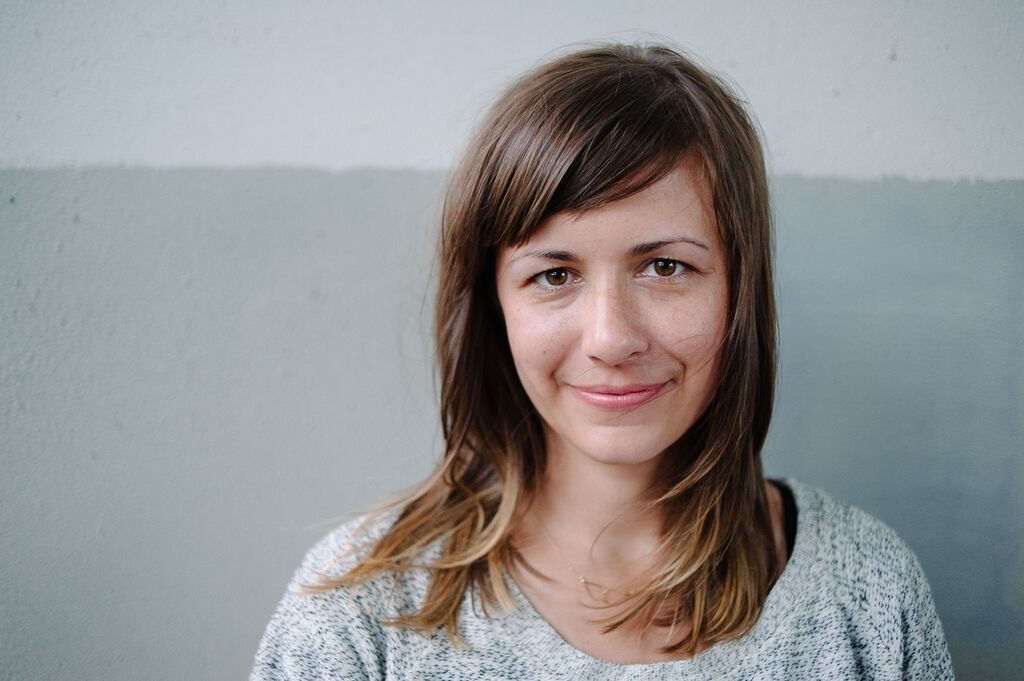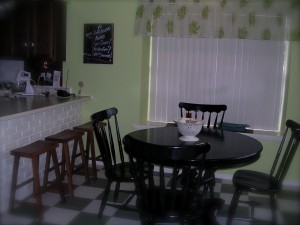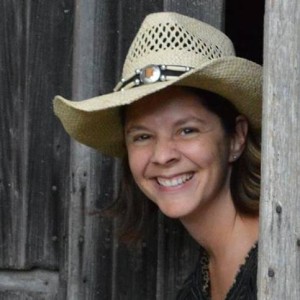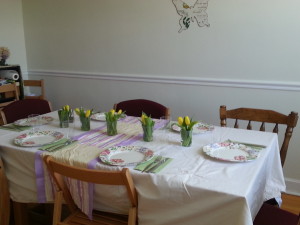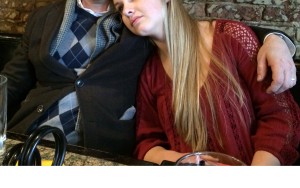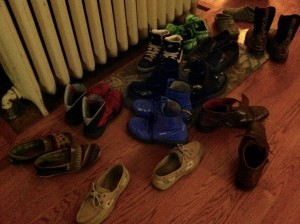A courthouse is designed to provoke obedience. Everything from the unforgiving stone floors and stuffy silence to the polished rails and guards in their creaking leather belts demands order. And why shouldn’t it? It’s a place where justice is meted out. A place where disappointments like us went to be punished.
We were nervous before we stepped inside, and the cop who checked us in certainly didn’t help.
“Sir!” he barked at my husband. “You can’t bring that in here.”
We looked around, wondering what contraband he could possibly be carrying.
The guard sighed and pointed at the waist of my husband’s carefully pressed black suit pants. “Your knife, sir. No weapons are allowed in the building.”
Born and raised in the country, my husband carries a pocketknife everywhere he goes. It’s as much a part of his ensemble as a watch, wallet, and cell phone, and neither of us had even considered our destination that morning as we prepared for what promised to be one of the hardest days of our married life.
“I’m so sorry, sir,” he stammered, sliding it from his belt. “Can I leave it here with you?”
“Nope,” the guard replied. “We’re not allowed to keep personal items at the desk.”
There wasn’t time to make the long walk back to the parking garage, and we stared, genuinely flummoxed and more rattled than we had been when we arrived. But then my husband saw a stand near the door that held plastic umbrella bags. He marched toward it, ripped one from the peg, and headed back outside to the courtyard. I couldn’t help but follow.
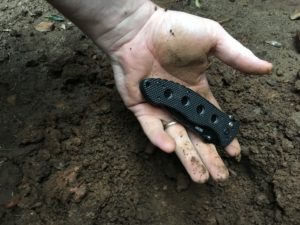 Choosing the closest planter, he wrapped the bag around the knife, tied it securely, and then began to dig a hole in the moist earth between a row of freshly planted purple and white pansies and the concrete wall. Then he dropped the bag in the hole and filled it in.
Choosing the closest planter, he wrapped the bag around the knife, tied it securely, and then began to dig a hole in the moist earth between a row of freshly planted purple and white pansies and the concrete wall. Then he dropped the bag in the hole and filled it in.
When he stood, I saw his hands were dirty—as dirty as I felt.
For weeks, I’d known this day was coming. It had been inevitable ever since we discovered the condo we’d bought, along with hundreds of others, hadn’t been built to code. Despite tens of thousands of dollars spent on repairs, which more than doubled our mortgage, the place still wasn’t close to passing inspection. In a few months, our savings account was siphoned dry, and bill after bill slipped into “past due” status.
Rather than continue to throw money into what had become an 1,100-square-foot pit (with new carpet no less), we’d opted to file chapter 13 and cut the rope keeping the financial albatross around our necks. Now, I imagined everyone who looked at me saw a scarlet “B” on my chest.
There was something so final, so disheartening, about stashing his knife that I couldn’t help but sob. It was like he was burying everything we’d worked so hard for—hopes for home ownership and putting down roots. Of finally being able to paint a wall yellow or blue instead of sterile rental white. All of it was going into the earth with that blade.
The rest of the day passed in a florescent-lit haze. We entered the courtroom and numbly sat down next to our lawyer. And when the time came for us to officially declare our insolvency, we stood and locked hands—more grateful than ever for each other. Shame, heavy as it might be, sits a little easier on two shoulders.
As the judge droned on for what felt like hours, we waited, letting the waterfall of meaningless words fall over us. The entire time, I imagined I could still feel that dirt on our hands, ground into the whorls of fingers and the crooked lines of life and love.
Ashes to ashes, dust to dust, I thought. From it we were made, and to it we shall return—all at once or one piece at a time.
After the papers were signed, we escaped into the sunlight of a perfect Florida afternoon, exhausted and looking for the closest bar—unsure what to do now that we were, for all intents and purposes, homeless. We were so desperate to leave, in fact, that we nearly forgot the knife, but my husband remembered and went back. It reemerged as clean and sharp as when it went in, and—though it didn’t feel so at the time—the same would be true of us after seven long, lean years.
I won’t lie. Being flat broke and without credit was rather close to the bone, but it also had a way of clarifying things. The finances were tight, but somehow, there was always enough. The few things we did have were enjoyed richly. My husband and I grew to love each other in truer and more meaningful ways, and each day, we found the answer to Jesus’ question “Is not life more than food, and the body more than clothing?” (Matt. 6:25) was a resounding yes.
* * * * * *
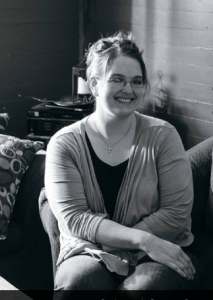 “The Blade and the Earth” was written by Jamie A. Hughes. Jamie is a writer, editor, and unapologetic St. Louis Cardinals fanatic who currently lives in Atlanta, GA with her husband, two adopted sons, and a pair of needy cats. A former high school teacher, she now works as the managing editor of In Touch Magazine and is struck dumb by her good fortune. She blogs at tousledapostle.com and can be found on Twitter @tousledapostle.
“The Blade and the Earth” was written by Jamie A. Hughes. Jamie is a writer, editor, and unapologetic St. Louis Cardinals fanatic who currently lives in Atlanta, GA with her husband, two adopted sons, and a pair of needy cats. A former high school teacher, she now works as the managing editor of In Touch Magazine and is struck dumb by her good fortune. She blogs at tousledapostle.com and can be found on Twitter @tousledapostle.
